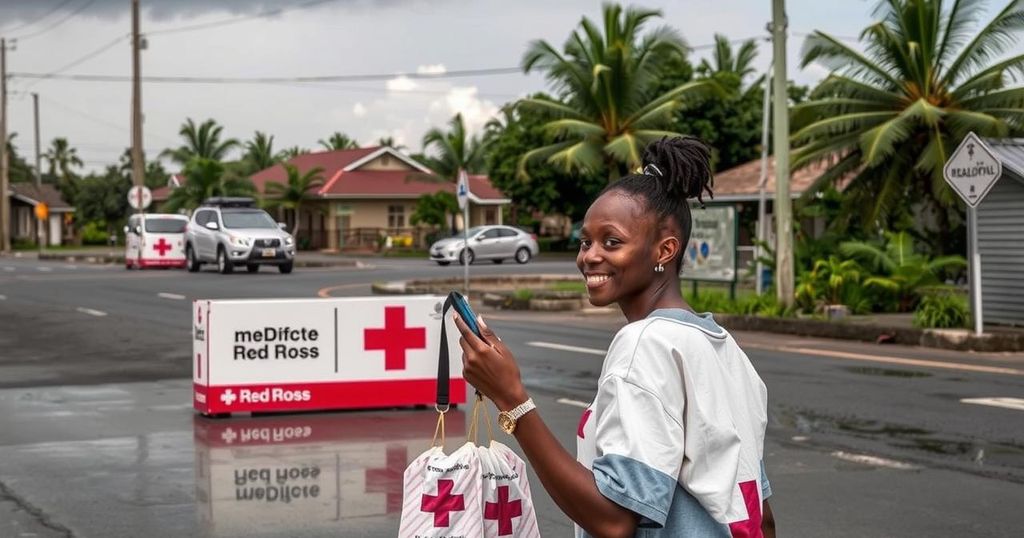Cyclone Chido struck Mozambique on December 15, displacing thousands and causing extensive damage across several countries. Preliminary assessments indicate approximately 622,000 individuals are affected in Mozambique alone. The IFRC has launched an Emergency Appeal, seeking to raise 10 million Swiss francs to aid recovery efforts and improve community preparedness for future cyclones, targeting 500,000 at-risk individuals across the region.
The South-West Indian Ocean tropical cyclone season commenced with the impactful cyclone Chido, which made landfall in Mozambique on December 15. The cyclone resulted in tragic loss of life and significant destruction across Madagascar, Comoros, Mozambique, Mayotte, and Malawi. Initial assessments indicate that approximately 622,000 individuals in Mozambique are affected, with more than 130,000 shelters damaged. The International Federation of Red Cross and Red Crescent Societies (IFRC) has initiated an Emergency Appeal to mobilize resources to assist those impacted by the cyclone, aiming to raise 10 million Swiss francs for holistic recovery efforts. The appeal also focuses on increasing community preparedness for future storms by enhancing early warning systems and disaster response training.
Red Cross teams are actively engaged on the ground, conducting rescue operations, providing essential supplies, and offering health services to the affected populations. The continued support and dedication of these teams are critical as the region braces for potentially more severe storms this season.
The cyclone season in the South-West Indian Ocean poses a recurrent threat to several countries, particularly Mozambique, Madagascar, Comoros, Mayotte, and Malawi. Cyclone Chido serves as a reminder of the vulnerabilities these nations face, with catastrophic weather events leading to loss of life, destruction of infrastructure, and displacement of communities. The Red Cross, as a vital humanitarian organization, plays an essential role in disaster response and preparedness, providing immediate support and working towards long-term resilience for affected areas. The current situation underscores the urgent need for international assistance in the wake of climatic adversities and the imperative of proactive measures.
In conclusion, cyclone Chido’s impact is a stark reminder of the vulnerability of coastal regions to tropical storms. With over 622,000 people affected across multiple countries, the humanitarian response led by the IFRC and local organizations is critical. The Emergency Appeal aims to not only provide immediate relief but also to enhance community preparedness for future weather events. The collective efforts of multiple stakeholders are essential in navigating the long-term recovery process and mitigating the impacts of future disasters.
Original Source: reliefweb.int






